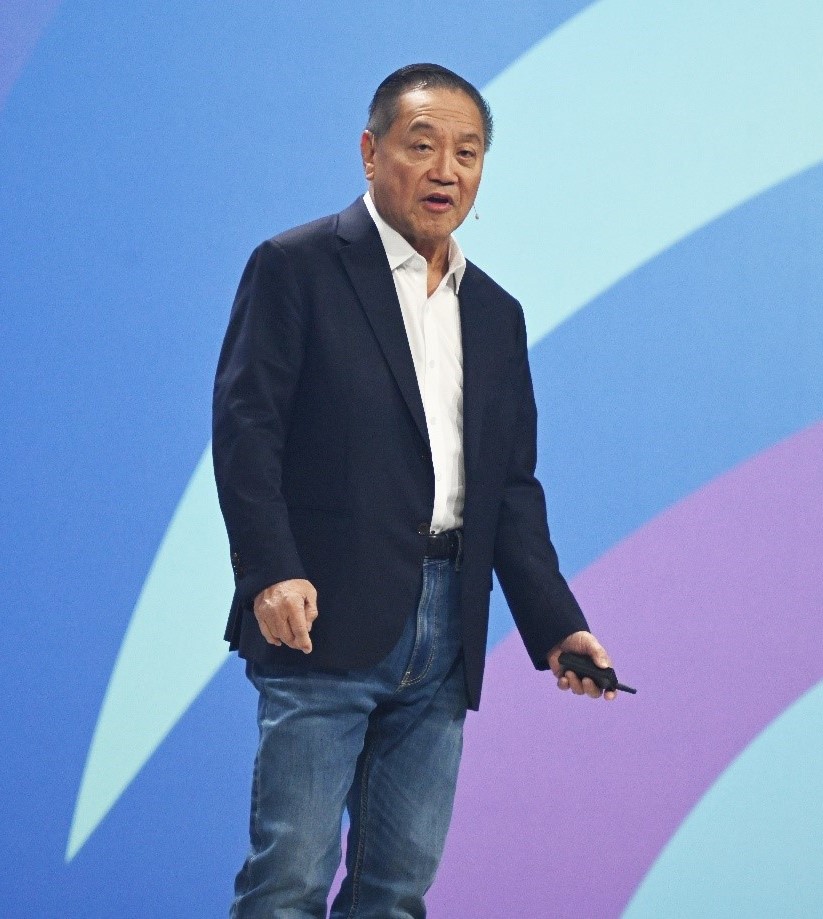The cost, complexity and compliance considerations in cloud management in today’s hybrid environment require enterprises to rethink their cloud strategies.
In his opening keynote at VMware Explore 2024 in Las Vegas, Hock Tan, President & CEO, Broadcom, said: “When Broadcom acquired VMware last year, we committed to simplifying VMware, to invest in innovation, and to enhance our partner ecosystem.”
Providing an update on how Broadcom was fulfilling those three commitments, he added: “Since we acquired VMware, I’ve been on the road a lot – talking with our customers and partners around the world… And many customers have told me they’re reassessing their commitment to public cloud.”

Quoting a recent survey, Tan reported that 8 out of 10 CIOs today are moving workloads back on-prem, which is a huge change from just a few years ago.
“A decade ago, many CEOs and Boards fell in love with the promise of the public cloud and committed their IT teams to put the public cloud first. CIOs are suffering from PTSD,” he quipped.
Fast-forward to today, and many organizations are now struggling with the “3 C’s” of the public cloud: cost, complexity and compliance.
Cost, siloes and innovation
For many enterprises, the public cloud has turned out to be more expensive than they expected. It became another platform and added an extra layer of complexity to management. And complying with regulatory requirements is far more complex and costly than they anticipated.
“That’s why it’s clear to me thatthe future of the enterprise is private: Private cloud. Private AI. Fueled by your private data,” Tan emphasized. “Of course, it makes sense for enterprises to continue using the public cloud for elasticity and bursting workloads.”
But in today’s hybrid world, the private cloud is now the platform to drive business and innovation, what with many organizations looking to leverage AI and data.
However, when it comes to compute, storage and networking, enterprises are still siloed. Data center silos for compute, storage and networking are a major hurdle as they slow down innovation. A key pain point for many organizations is in overcoming this hurdle to effectively deliver services to their customers.
“Siloes make you less resilient. When something breaks, everybody points fingers,” said Tan.
The solution is what Broadcom calls the VMware Cloud Foundation (VCF). “It’s resilient. It’s more secure. And it costs a lot less than the public cloud. But we’re not stopping there.”
Providing a rich catalog of ready-to-deploy services, like what businesses are used to getting in the public cloud, VCF is a private cloud platform that promises the ability to develop and deliver services at high velocity – with advanced security, data services, disaster recovery, container operations, edge orchestration, load balancing, workload automation, and Private AI.
The VCF Operations Console offers a unified platform for operations and automation, simplifying complexity and compliance.
Private AI
Chris Wolf, Global Head of AI and Advanced Services, said: “Nobody wants to be stuck with a single solution.” Over the last couple of years, enterprises realize they need an AI platform with all the tools needed for success, supporting a large ecosystem for choice and openness.
“Time has also shown us that there will not be a singular solution for AI,” said Wolf. “This is truly an ecosystem game, and we are continuing to push forward to build the best possible ecosystem…”
Here’s where Private AI comes in. It is designed to help organizations leverage AI while addressing crucial data privacy, security, and control concerns.
Some key aspects of Private AI include:
- Customized Large Language Models (LLMs): Enterprises can run their own LLMs tailored to their specific needs, ensuring that the AI solutions are highly relevant and effective for their unique use cases.
- Data security: Private AI ensures that sensitive data remains within the enterprise’s control, reducing the risk of data leakage and unauthorized access. This is crucial for industries with stringent data privacy regulations.
- Risk mitigation: By keeping AI operations in-house, enterprises can better manage and mitigate risks associated with data privacy and compliance.
- Enhanced performance: Private AI can be optimized for the specific hardware and infrastructure of the enterprise, leading to better performance and efficiency.
